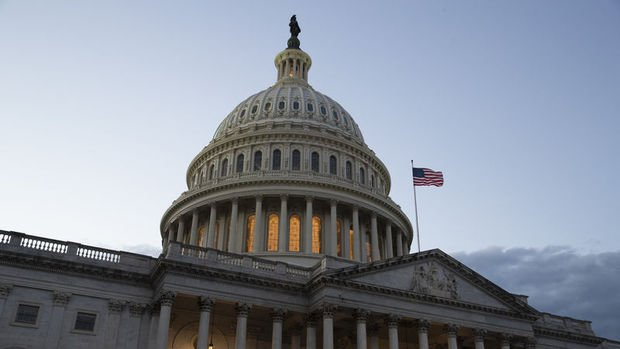US Senate passes debt limit bill
The US Senate has approved a bill that would prevent the country from defaulting by increasing the debt limit. A vote was also held in the US Senate on the Fiscal Responsibility Bill, which was agreed upon after lengthy negotiations between the White House and Republicans and passed in the House of Representatives by 314 votes to 117. While more than 10 amendments were rejected in the Senate, the bill was approved with 63 yes votes to 36 no votes. The bill, which would suspend the debt limit until January 1, 2025, will be presented to US President Joe Biden for his signature to become law. In this way, by increasing the debt limit, the federal government will be prevented from experiencing a cash shortage and defaulting. “I look forward to signing this bill into law as soon as possible” In his written statement on the subject, President Biden stated that senators from both parties voted to prevent the United States from defaulting for the first time, and thanked Senate Majority Leader Chuck Schumer and Senate Minority Leader Mitch McConnell for passing the bill swiftly. Drawing attention to the fact that this bipartisan agreement is a huge win for the U.S. economy and the American people, Biden emphasized that the bill protects the pillars of the “Investing in America” agenda. Biden emphasized that their work is not done yet, but that this agreement reminds us of what is possible when we act in the best interests of our country, saying, “I look forward to signing this bill into law as soon as possible and addressing the American people directly tomorrow.” “Default would lead to serious challenges” U.S. Treasury Secretary Janet Yellen also noted that she was pleased that Congress, under President Biden’s leadership, passed bipartisan legislation to suspend the debt limit and prevent the United States from defaulting for the first time. Stating that the law in question is critical to the economic growth and stability of the USA, Yellen emphasized that a possible default would cause serious difficulties for American families. Pointing out that Congress has a duty to ensure that the USA can pay its bills on time, Yellen stated that she believes that all faith and credit of the USA should not be negotiable. Stating that their focus is now on continuing to fulfill President Biden’s economic agenda, Yellen said, “Treasury will continue to effectively implement the Inflation Disruption Act to maximize the economic benefits for American taxpayers, families, and workers.” Could provide savings of $1.5 trillion over 10 years The bill, which also provides for cutting spending for some federal programs as well as suspending the debt limit, plans to impose new work requirements on beneficiaries of some government aid, including food assistance programs. The bill foresees the recovery of aid money provided during the Covid-19 pandemic but not used. The bill also aims to speed up the permitting process for some energy projects. According to an assessment of the bill’s impact on the federal debt and budget deficit published by the U.S. Congressional Budget Office (CBO), if the bill is passed and the appropriations subject to the cap are implemented as planned, the budget deficit is expected to decrease by approximately $1.5 trillion over the next 10 years. The debt limit must be increased by June 5 The U.S. reached the $31.4 trillion debt limit on January 19, and the U.S. Treasury began taking extraordinary measures to avoid exceeding the limit and to prevent a potential default. The Treasury Department had warned that these extraordinary measures could run out at the beginning of June. In her latest letter to U.S. House Speaker Kevin McCarthy regarding the debt limit, U.S. Treasury Secretary Janet Yellen stated that based on current data, it is estimated that the Treasury will have insufficient resources to meet its obligations if Congress does not raise or suspend the debt limit by June 5. The U.S. Treasury's cash level fell to $38.8 billion as of May 25, the lowest level since 2017, as debt limit negotiations continued.


